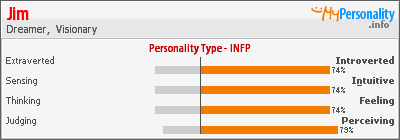"When I use a word,' Humpty Dumpty said in rather a scornful tone, 'it means just what I choose it to mean — neither more nor less."So, let us consider some words. In one section of the covenant, referred to frequently Bishop Gregory Cameron and Canon Alyson Barnett-Cowan the authors specifically say it does not compel anyone to obey.
"The question is," said Alice, "whether you can make words mean so many different things."
"The question is," said Humpty Dumpty, "which is to be master— that's all."1
One can say that about the criminal law. After all, someone may rape, murder, rob, defraud and even exceed speed limits. We might say that if one does those things, she or he will suffer, (wait for it!) "relational consequences."
Neither Parliament nor Congress sentences criminals to prison terms. The US Constitution specifically forbids, "bills of attainder" which were a mechanism by which some European parliaments or governments in the 18th century could do this (pre-revolutionary France famously among them.) Neither England nor the US permit such things today.
In some sense then the legislature does not compel one to obey. Rather they define the covenant between citizens and the State. Legal and political science scholars, call this the "Social Contract." Consider the preamble of the US Constitution which says, "... we, the people of the United States do ordain and establish this constitution..." Yup, we create it. One can say the same of Parliament and the UK government -- it is an organic creation of the people, the voters.
The Courts impose sentences based on the legislature's "recommendations." In fact in U.S. law, there are several layers of recommendation. Not only does a trial judge have the law, they also have recommendations from the prosecutor, "corrections professionals," possibly the victim and often the editorial pages. They lack a steering committee but the group that defines sentencing guidelines rather resembles one.
The canon and the bishop would have us believe that all the juridical process contained in section four is invisible because the specific "relational consequences" are not specified. Rather they are left to the "instruments of unity" acting on recommendations. Excluding American and Southern Cone theologians from the ecumenical commission is not a penalty either -- merely a consequence.
These are distinctions without differences and these two people are I think smart enough to know that. They think we are not smart enough to get it. The elitism inherent in that assumption is breathtaking. One of the problems in the Anglican community is that sometimes our leaders fall too much in love with their academic attainments and forget that some of us who are not canons or bishops either have them too or are well read and fairly bright without them. In my view when that happens the person who has so fallen into error should stand down from office. Certainly in the case of a canon in the US, this would be a permanent bar from episcopal election. Best stay on the appointed side of the Atlantic!
FWIW
jimB
**************
1) Lewis Carroll in Through the Looking Glass Chapter 6.





No comments:
Post a Comment